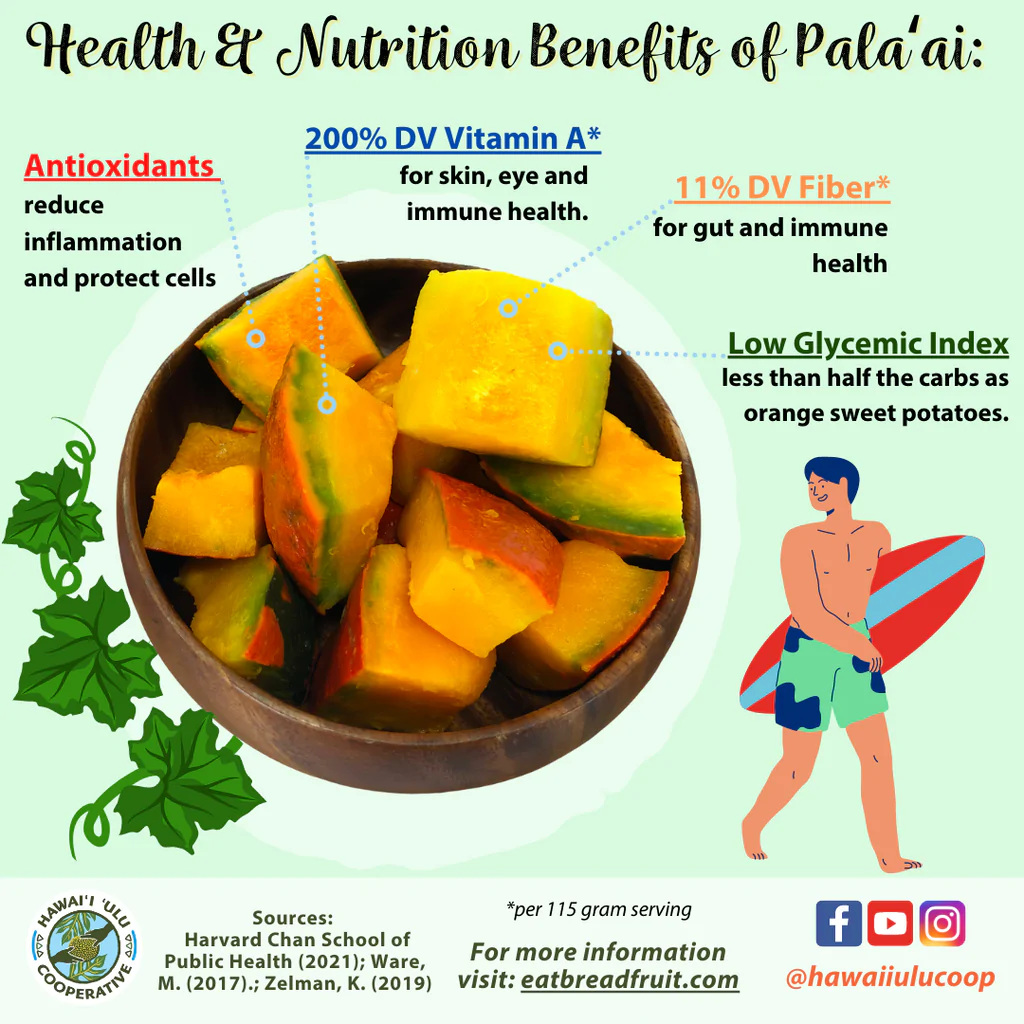Squash Nutrition and Health Benefits
Delicious in both sweet and savory dishes, our minimally-processed Hawaiian squash makes healthy eating easier. The nutritional benefits of palaʻai (pumpkin or squash) are impressive; palaʻai is rich in vitamins and nutrients which support eye, skin, gut, nervous system and heart health as well as help regulate blood sugar, improve immunity and manage weight. Read below to learn more information about squash’s health and nutrition benefits.
Technically a fruit, but commonly classified as a vegetable, pumpkins are thick-skinned and contain mature seeds. All varieties are native to the Western Hemisphere, and have been highly valued in Native American agriculture for thousands of years due to their nutritional value and culinary versatility. In the Three Sisters Trio, pumpkin nutrients are a necessary compliment to the protein and carbohydrates provided by corn and beans. Health benefits from squash include:
Antioxidants and Vitamin A for Eye and Skin Health
- The orange color of pumpkin is created by the antioxidants lutein, zeaxanthin, beta carotene and Vitamin A, which help protect your eyes from ultraviolet rays and all cells from damaging free-radicals.
- One serving of palaʻai has over 200% of the adult Daily Value (DV) for vitamin A. Vitamin A is important for eye health and also supports immune, skin, heart, lungs and kidney health. A recent study associated a relatively high Vitamin A intake with a lowered risk of squamous cell skin cancer of about 15%.
Potassium for Heart and Nervous System Health
- With around 270 grams of Potassium per serving, squash provides valuable electrolytes for heart health, which help counteract the unhealthy effects of sodium on blood pressure.
- One 115 g serving of palaʻai has just under 6% of the adult DV for Potassium, an important nutrient for nerve cells to generate impulses and communicate messages throughout the nervous system.
Fiber for Gut Health and Weight Management
- Delivering around 11% of the adult DV for fiber in one 115g serving, pumpkin can help you reach fiber intake goals and receive related health benefits including reduced constipation, nourished gut bacteria and improved immune function.
- The fiber in winter squash can help regulate blood sugar levels as well as maintain weight by contributing to feelings of fullness.
Low Glycemic Index for Blood Sugar Level Regulation
- Winter squash has a Low Glycemic Index, with some varieties containing less than half the amount of carbohydrates as do orange sweet potatoes.
- Polysaccharides, the indigestible fiber found in squash, has been found in studies to prevent blood sugar from rising after eating, which may contribute to improved insulin sensitivity.
Ready to brighten your plate with vivid and nutritious winter squash while supporting Hawaiʻi’s farmers? Order your fresh-frozen palaʻai here and have it delivered straight to your doorstep.
Perfect for baking, roasting and blending in soups, these orange-fleshed pumpkins have a rich nutty flavor that will fill every squash recipe (find mouthwatering ideas on our palaʻai recipe page) with tasty nourishment.


